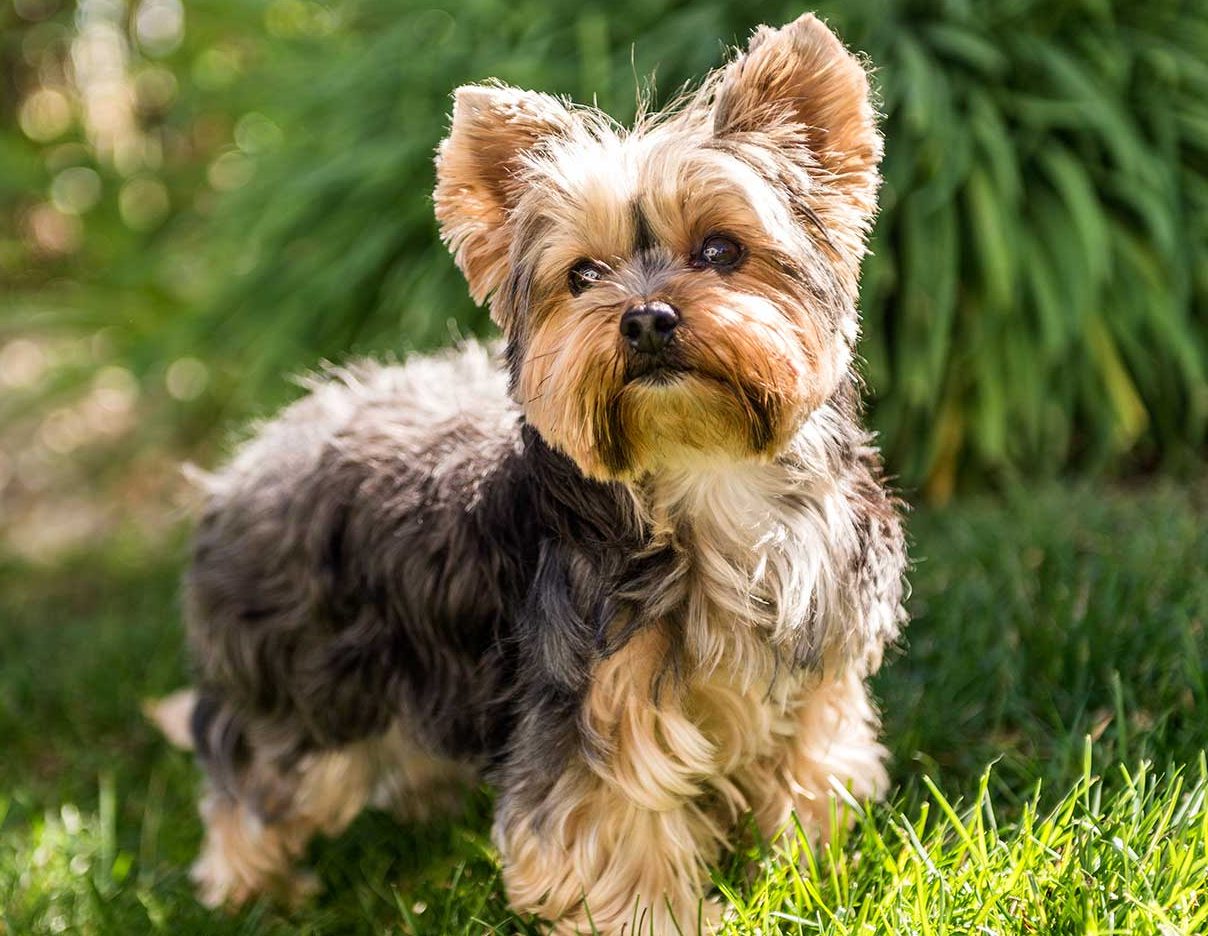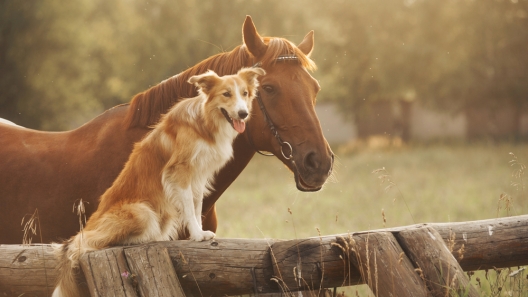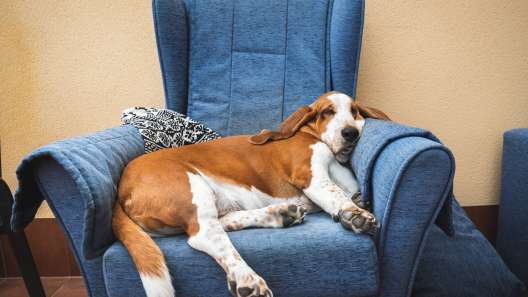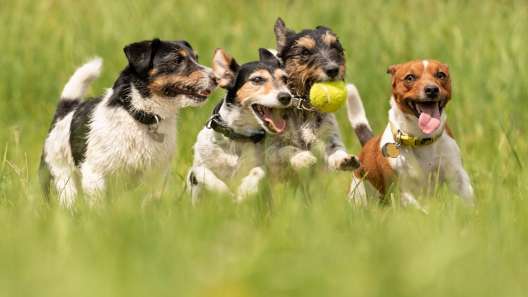-
Activity Level:
high
-
Shedding Level:
low
-
Grooming Level:
moderate
-
Trainability:
high
-
Good for Novice Owners:
high
-
Adaptability:
high
-
Kid/Pet Friendly:
sometimes
-
Prey Drive:
high
-
Watchdog:
very alert
- Average Size: Small
- Average Lifespan: 11-15 years
- Registered?: aca, akc
Yorkie Dog Breed Information
Overview
Temperament
Adaptability
Health
Owner Experience
Grooming
Activity Level
Size
Life Span
Did You Know?
The Yorkshire Terrier or “Yorkie” originated in the UK township of Yorkshire, where they get their name in the mid-1800s. Yorkshire Terriers were first bred as “ratters”, or dogs that could shimmy into small spaces to control rat populations.
It was only later that they became a favorite fashionable lapdog of Victorian nobles and they made it to the United States in the 1870s. In 1885, the American Kennel Club recognized these small but expressive dogs as a member of the Toy Group. While they are now one of the most popular dog breeds in the United States for being a wonderful companion, they haven’t lost their sense of adventure or determination.
Yorkies are small dogs that can sometimes have a big diva attitude, especially if they are not well-socialized or well-trained. A properly socialized and trained Yorkshire Terrier is an affectionate, loving, and loyal dog with a playful, energetic, and sometimes mischievous personality. They are certainly not above getting into trouble or making a fool of themselves if it means they will be the center of attention.
As long as they are well-socialized, a Yorkshire Terrier tends to get along well with children, other dogs, and other pets. Even though they are a Terrier with a high prey drive, they tend to do well with other family pets that they have been socialized with or grew up with. They will still have an urge to chase everything else, however, so it’s best to only let them off-leash in secure areas.
They will alert you of strangers, but tend to warm up quickly and take a friendly approach. After all, a stranger is just another potential admirer and source of attention to a Yorkie. Yorkshire Terriers are small, but it can be said that their bark can be heard all over the neighborhood. They will alert bark, which can become a nuisance if you do not train your dog to stop barking early on.
Yorkshire Terriers are highly adaptable dogs. They tend to do well in apartments as well as larger homes with fenced yards where they can run. They are sensitive to heat and to cold. Due to their small size, they may need to bundle up in some winter dog gear to stay warm while out on walks when temperatures drop.
Because Yorkies bond so closely with their families and are happiest when they are with them, they do not like to be left alone for long periods of time. This can make them prone to developing separation anxiety if you do not work with them on this early on.
As with any dog, the health of the parents and good breeding practices make a big difference in the health of a puppy. Potential health concerns to be aware of in a Yorkshire Terrier include patellar luxation and eye anomalies.
Reputable breeders will screen their dogs to avoid passing preventable issues to puppies. Make sure you are asking about the health and genetic history of both parents. You can also ask about health tests or clearances that have been done.
Yorkies are intelligent dogs and tend to be eager to please, but they can also be stubborn at times and are not above using their adorable face to try and get their way. As long as training is kept consistent, clear, and focused on positive praise and reward, Yorkshire Terriers tend to excel.
As a tiny puppy with a tiny bladder, they do need to be given frequent potty breaks. House training can be difficult at first, but with some house training tips, some puppy pads for backup, and plenty of patience, you and Yorkie can get through it.
Although Yorkshire Terrier’s coat is low/non-shedding, their fur is similar to human hair in texture and requires a lot of maintenance to stay healthy and looking great. A longer cut requires daily brushing to remove tangles and prevent mats. If the fur on top of the head is not trimmed short, it will need to be tied up to stay out of a Yorkie’s eyes.
A short cut, or puppy cut, only needs brushing a few times a week. No matter the length of the cut, a Yorkshire Terrier needs a bath every week or so and grooming every 4-6 weeks. In addition to coat care, you will also need to take care of your Yorkie’s nails, ears, and teeth. The dog groomer may be able to help with some of it, but you will still need to do some maintenance at home between visits.
Nail trims once or twice a month are usually enough to keep nails from growing too long and causing issues. Ear checks weekly with careful cleanings as needed can help prevent ear infections. As a small dog breed, a Yorkshire Terrier is even more prone to developing dental diseases later in life, which makes good dental care for dogs early and consistently throughout your dog’s life essential. Daily brushing, along with cleanings at the vet as needed, is a good foundation.
Although a Yorkshire Terrier may have bursts of high energy when they play, they tend to sit in a more moderate to low range. Daily walks plus some playtime are usually plenty for this little dog. They love spending time with you though, so they will likely be up for more if you are. Just make sure they are not overheating or overexerting themselves trying to keep up with you.
The Yorkie is one of the smallest dog breeds. A fully-grown Yorkshire Terrier usually stands 7-9 inches tall and weighs 4-7 pounds.
Yorkies generally live for 11-15 years on average.
Although they are now one of the most popular show dog breeds, Yorkies made their first appearance in 1861 at an English bench show where one competed as a “broken-haired Scotch Terrier”. They wouldn’t be called “Yorkshire Terriers” until 1870.









